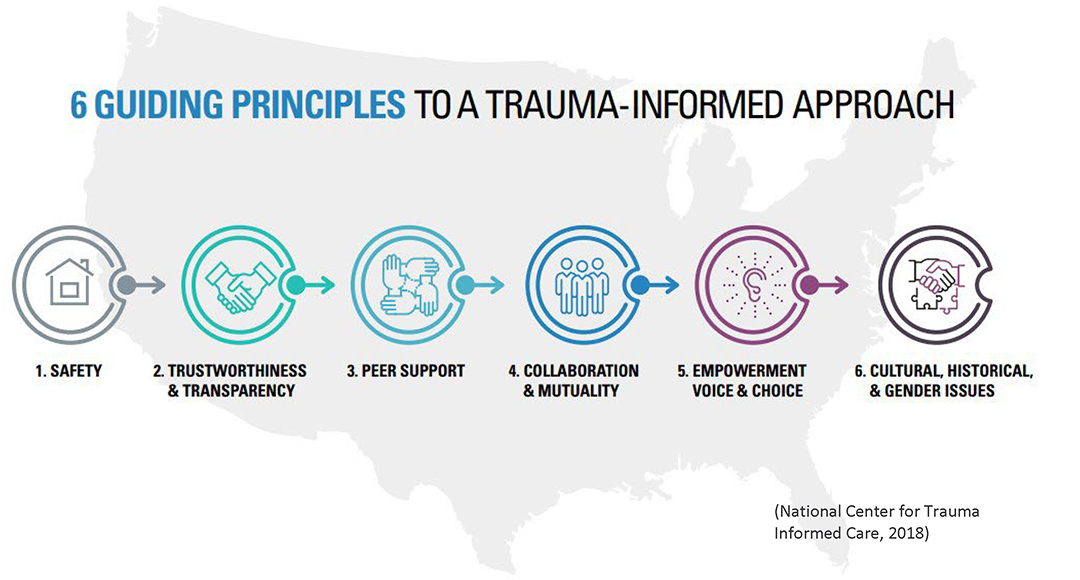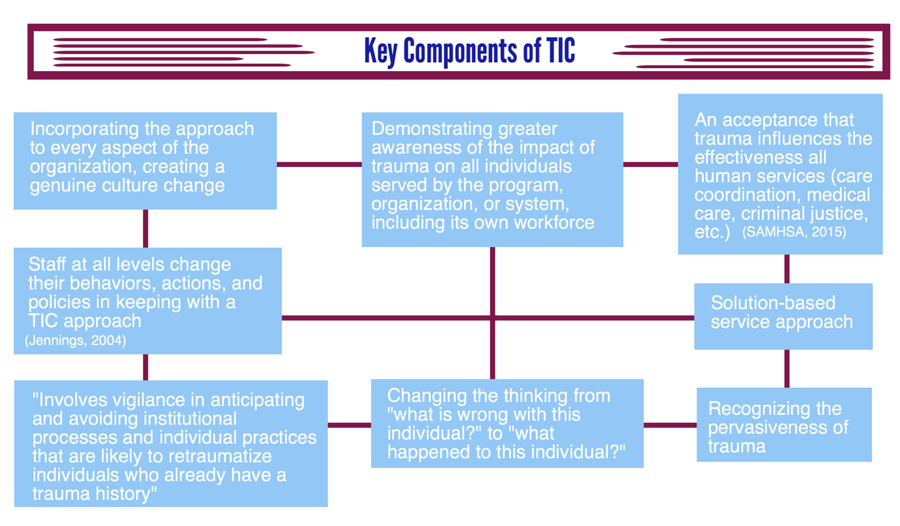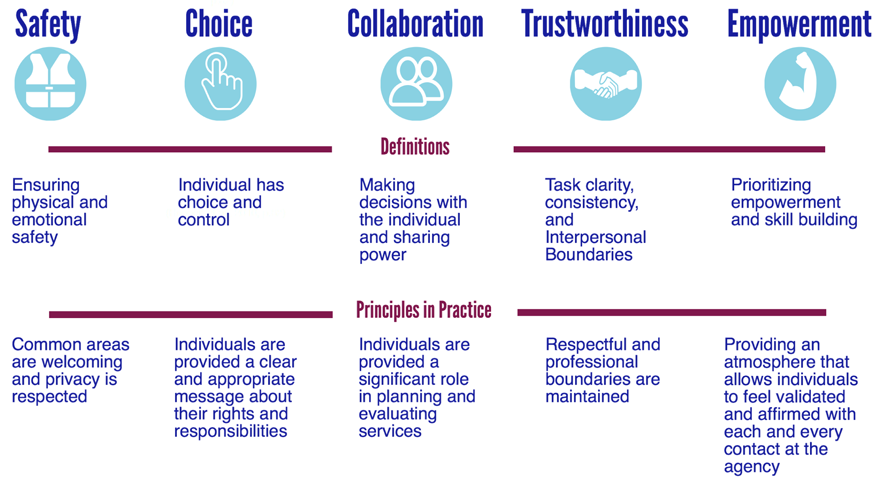Cultivating a Trauma-Informed Approach
"A program, organization, or system that is trauma-informed realizes the widespread impact of trauma and understands potential paths for recovery; recognizes the signs and symptoms of trauma in clients, families, staff, and others involved with the system; and responds by fully integrating knowledge about trauma into policies, procedures, and practices, and seeks to actively resist re-traumatization."
Substance Abuse and Mental Health Services Administration (SAMHSA)


What is Trauma-informed practice? When someone mentions "trauma," most of us understand that trauma occurs due to an extreme event or series of events that overwhelm our capacity to cope. We may know that trauma causes emotional and physical harm that is long-lasting and may be severe. Trauma may also be "caused or magnified by discrimination, marginalization, and historical and generational trauma." Given the widespread impact of trauma, with studies indicating that 60-70% of people have experienced at least one traumatic event in their lifetime, it stands to reason that to meet the needs of survivors, our systems of care, education, and commerce need to be trauma-informed. "Trauma-informed" practice creates a physically and emotionally safe environment, establishing trust and boundaries, supporting autonomy and choice, creating collaborative relationships and participation opportunities, and using a strength and empowerment-focused perspective to promote resilience are ways in which the principles of Trauma-Informed Practice work to reduce re-traumatization and promote healing. To learn more or to request technical assistance, email training@maineresilience.org. | Why is it important to be trauma-informed? Maine is experiencing a youth mental health crisis in our youth, with 20% of middle school youth and 18.5% of high school youth reporting serious thoughts of suicide in 2021. Maine also ranks number one in the country for youth anxiety. Impacts from trauma are expensive. According to the U.S. CDC, "The total lifetime economic burden resulting from child maltreatment in the United States in 2018 is approximately $592 billion." Trauma impacts physical and mental health and well-being. Relationships can help heal and promote wellness by recognizing and responding to trauma. Trauma-informed care promotes effective, efficient care across the continuum of services. While we often hear the term used in health care, public health, education, and social service settings, it is applicable in our workplaces and our communities. |

Institute on Trauma and Trauma-Informed Care (2015)

Institute on Trauma and Trauma-Informed Care (2015)
